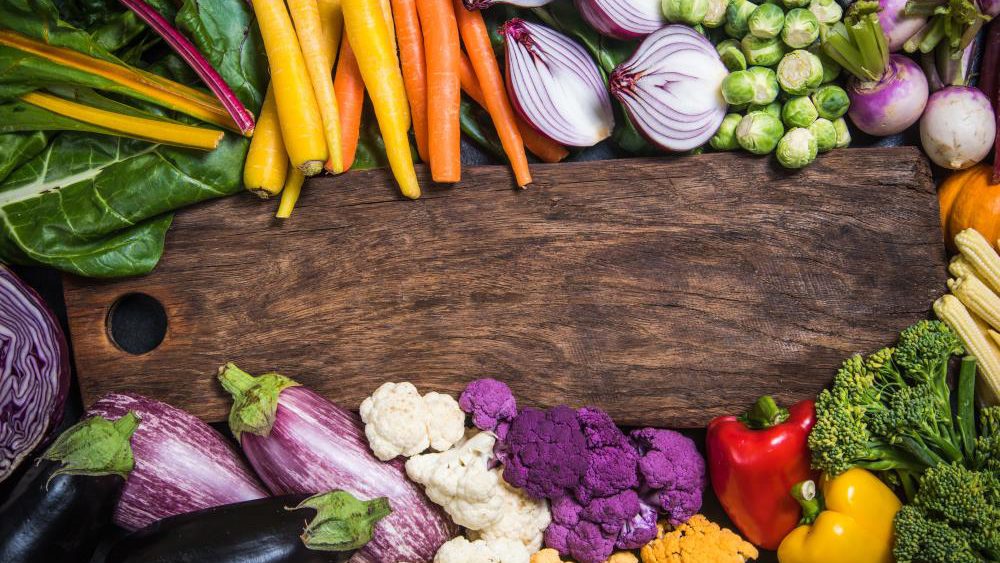
Advertisement
As a child, you may have been told countless times to eat your fruits and vegetables, and for good reason. Research has proven time and again that these healthful foods are jampacked with vitamins, minerals, antioxidants and phytochemicals that maintain and even improve overall physical and mental health.
Over the years, research has shown that nutrient-dense plant foods truly are great at keeping people healthy and preventing diseases. Now, experts say that eating fruits and vegetables can trump yet another crippling disease, adding to the many health benefits of a plant-based diet.
According to American physician, author and speaker on public health issues Dr. Michael Heschel Greger, who authored the book How Not to Die in 2016, a plant-based diet can protect against the harmful effects of lung disease.
According to Greger, who is a leading voice in advocating the healing power of diets and lifestyle, data going back 50 years has revealed that a high intake of fruits and vegetables is linked to optimal lung function. In fact, one extra serving of fruits each day is equivalent to a 24% less chance of death from chronic obstructive pulmonary disease (COPD).
Greger also noted that a 2012 study found that elderly participants who consumed five or more servings of fruits and vegetables every day had an 82% higher antibody response to a pneumonia vaccine as compared to those who ate two or fewer servings a day.
Furthermore, a study of over 100,000 adults in India showed that those who ate meat daily, or even occasionally, are more prone to having asthma than those who did not eat meat and eggs.
The rationale behind diets affecting airway inflammation may lie within the thin coating of fluid that comprises the interface between the respiratory tract lining and the outside air.
If you are a smoker, Greger advises quitting right now. “The most important step you can take is to stop. Now. Please. The benefits of quitting are immediate because the human body possesses a miraculous ability to heal itself as long as we don’t keep re-injuring it.
Just 20 minutes after quitting, your heart rate and blood pressure drop. Within weeks your blood circulation and lung function improve, and within months, the sweeper cells that help clean the lungs, remove mucus, and reduce the risk of infection start to regrow,” Greger said.
Simple dietary changes can also help alleviate the damage brought about by the carcinogens in tobacco smoke, Greger added.
A recent study found that among a group of long-time smokers, those who ate 25 times more broccoli than average (just a single stalk a day), suffered 41% fewer DNA mutations in their bloodstreams over 10 days.
Broccoli, the wonder vegetable
Broccoli is said to hinder DNA damage and the spread of metastatic cancer. It can also double the production of enzymes that heal the liver, eliminate breast cancer stem cells and decrease the risk of prostate cancer progression.
This enzyme is called sulforaphane, which also keeps your brain and eyesight healthy, lessens nasal allergy inflammation and alleviates symptoms of Type 2 diabetes.
“What about frozen broccoli? Sadly, commercially produced frozen broccoli lacks the ability to form sulforaphane, as the vegetables are flash-cooked before they are frozen,” Dr. Greger said.
Sulforaphane is also contained in mustard powder. Sprinkle it over frozen and then flash-cooked broccoli. This way, you can get the benefits of sulforaphane even though the broccoli that you are about to consume is not fresh.
Other ways to improve lung function
Increase your intake of beta-carotene to improve your lung function. Beta-carotene is a carotenoid that is found in many fruits and vegetables. It is converted to vitamin A, which is essential for lung health. Fruits and vegetables that are good sources of carotenoids are sweet potatoes, carrots, cantaloupe, apricots, mangoes, red peppers and squash, such as pumpkin and acorn.
According to the Office of Dietary Supplements, people who have a good amount of vitamin C in their bodies are protected against lung cancer. Foods that are rich in vitamin C include potatoes, tomatoes, Brussels sprouts, red and green peppers, kiwifruit and strawberries, among others.
Sources include:
Advertisements







